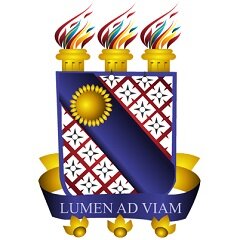TEXT
Until a few weeks ago, the immigrant transfer center on the tiny Mediterranean island of Lampedusa/Italy was empty. An extensive European campaign against migration from Africa was considered so effective that the authorities basically shut it down.
But since the Tunisian government collapsed in January, spurring unrest across North Africa, Lampedusa has been bustling. The Italian police tow in boats full of desperate immigrants — about 6,000 refugees in the past two months. Young men in hooded jackets smoke cigarettes and await transfer to the mainland — a prospect that is striking fear in many European hearts.
The turmoil in Libya and elsewhere in the region has toppled or undermined North African dictators who negotiated a web of benefits from Europe, including aid and diplomatic standing, in return for stopping immigrants seeking to cross the Mediterranean.
Without the assistance of those leaders, many in Europe worry that they will face new waves of illegal immigration not only from the liberated areas in the north, but from much of sub-Saharan Africa as well.
The immigrants would arrive at a time when much of Europe — struggling with high unemployment and lethargic economies — is already awash with anti-immigrant sentiment, and many countries say they are simply incapable of absorbing poor migrants.
Unable to build the kind of border fence that the United States has erected to keep Mexicans at home, countries like Spain and Italy have spent years forging close relationships with North African leaders, persuading them to prevent migrants from trying to sail the rough seas of the Mediterranean. In return, Morocco, Tunisia and particularly Libya sometimes used brutal tactics to keep immigrants from ever getting near European shores, human rights activists say.
Italy‘s agreement with Libya, signed in 2008, was considered especially effective. Italy pledged $5 billion over 20 years in exchange for Libya blocking would-be immigrants from leaving. Almost overnight immigrants stopped arriving in Lampedusa.
According to the Italian Interior Ministry, in 2008, more than 36,000 immigrants came ashore in Italy — not only from North Africa, but from the Horn of Africa, Niger and Nigeria. After the treaty, that number dropped to 9,500 in 2009 and slowed to a relative trickle in Lampedusa.
Italy‘s arrangement with Libya was hardly the only one. Spain, too, has over the years enlisted the help of Morocco and other African countries in dealing with immigrants. Experts say it has offered countries equipment for patrolling shorelines and economic aid of all sorts — so that immigrants have fewer reasons to leave and African governments have more reason to help.
Spain offered Senegal money to help repatriate immigrants who were often returned to the Dakar airport but did not have the money or the incentive to return to their villages. At times, the European Union pays for such projects, too.
The agreements have been effective. In the past year, control of the African coastline was so tight that immigrants were turning to a wholly different route, showing up on the land border between Greece and Turkey. In recent weeks, Italian officials have warned of a ―biblical exodus" in which as many as 300,000 could arrive, though many experts say that number is intended more as a way to stir up passions domestically than as a reflection of any clear reality.
Now, the island‘s local population of 6,000 is once again outnumbered by detained migrants, according to the ministry. At one point, there were so many immigrants here that the authorities allowed them to wander the island freely rather than keep them locked up. Inside the center on Wednesday, hundreds of young men, almost all from Tunisia, were eager to tell visitors their message: ―We want work."
Adapted from: www.nytimes.com march 09,2011


